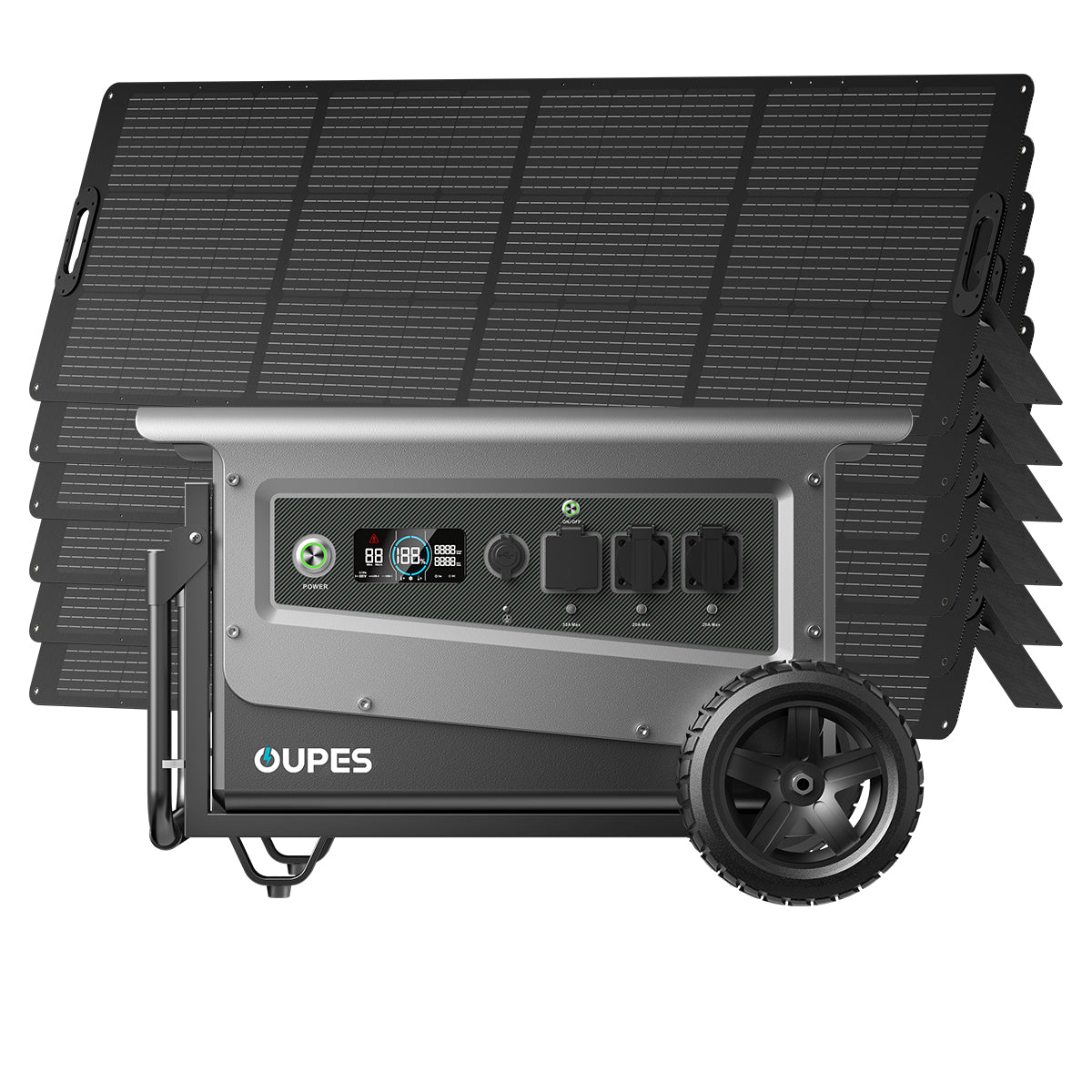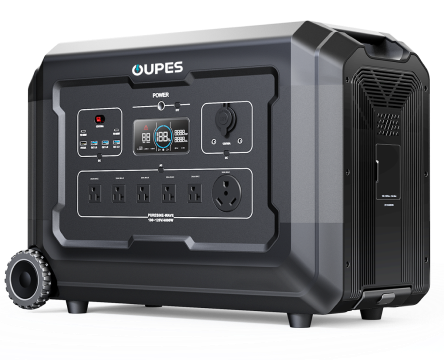
Power outages are an increasingly common issue across the country due to severe storms, aging infrastructure, and unpredictable grid failures. For renters, the sudden loss of electricity can bring up not only inconvenience but also serious financial concerns. Many tenants wonder whether their renters insurance will help cover food spoilage, damaged electronics, or even temporary relocation expenses when the lights go out.
In this article, we’ll dive deep into the details of renters insurance and how it applies to power outages. We’ll also explore practical solutions like backup energy options and highlight how OUPES portable power stations can keep your household running even when the grid goes dark.
Understanding Renters Insurance and Its Scope
Renters insurance is designed to protect tenants’ personal property and provide liability coverage in certain situations. Unlike homeowners insurance, it doesn’t cover the structure of the building itself—that responsibility falls to the landlord. However, renters insurance does cover belongings like clothing, furniture, electronics, and appliances within your apartment or rental home.
When it comes to power outages, renters insurance coverage often depends on the cause of the outage. For example, if a power surge caused by a lightning strike damages your laptop or television, your policy may cover the replacement of those items. On the other hand, if the outage is caused by routine grid failure without a covered peril, your insurer may not compensate for the resulting losses.
Policies also vary significantly by provider, so renters should always review the fine print and discuss specific scenarios with their insurance agents. It’s also essential to understand the distinction between personal property coverage and additional living expenses coverage, both of which may come into play during extended outages. In practice, this means your renters insurance may pay for food or hotel stays if your apartment becomes uninhabitable due to a covered event, but not necessarily if the outage stems from a broader utility issue.
Because outages are unpredictable, tenants should also consider alternative solutions. Portable power stations from OUPES, such as the Exodus 1200 or Mega 3, provide immediate backup electricity without relying on noisy gas generators. While renters insurance can help in some cases, having your own power solution ensures peace of mind regardless of how your insurer defines coverage.
When Renters Insurance Covers Power Outage Damages
Renters insurance is most likely to cover power outage damages when the outage is caused by a peril listed in your policy. These typically include events like fire, lightning strikes, windstorms, or vandalism. If your electronics are fried by a power surge following a lightning storm, you may file a claim to replace them. Similarly, if a fire in your building knocks out power and damages your belongings, your policy is designed to step in.
Another key element is “loss of use” coverage, which can reimburse you for additional living expenses if your rental becomes uninhabitable. For instance, if a storm damages your building and cuts power for several days, forcing you to stay in a hotel, renters insurance may help cover that cost. However, it’s important to note that widespread outages caused by grid failures or rolling blackouts often don’t qualify under this coverage unless tied directly to a covered peril.
Food spoilage is another gray area. Some policies may reimburse you for spoiled food in your refrigerator if the outage results from a covered peril. Yet, if your power simply goes out for hours due to high demand or an equipment failure on the utility company’s side, coverage is less certain. That’s why reviewing your policy language is critical.
Instead of relying solely on renters insurance, proactive solutions can help. OUPES Exodus 2400, with its 2232Wh capacity and 2400W output, can power refrigerators, routers, and medical devices during extended blackouts. This not only reduces food waste but also ensures your household continues to function while the grid recovers.
Situations Where Renters Insurance May Not Help
While renters insurance provides valuable protection, it doesn’t cover every possible outcome of a power outage. For example, if the outage is due to a utility company’s equipment failure, many insurers classify this as outside their responsibility. Similarly, rolling blackouts implemented to conserve energy in high-demand situations usually don’t qualify for compensation.
Another limitation is wear and tear. If your electronics fail during an outage because they were already old or damaged, insurers are unlikely to approve your claim. Renters insurance generally doesn’t cover mechanical breakdowns unrelated to a specific peril. The same applies if your losses come from negligence, such as failing to protect your food with coolers or backup energy when the outage was announced in advance.
Renters must also consider policy deductibles. In many cases, the deductible may be higher than the value of the food or small electronics lost in the outage, making it impractical to file a claim. This is why many tenants explore practical alternatives like portable power solutions.
OUPES portable power stations bridge the gap where insurance falls short. The OUPES Mega 5, with its expandable 5040Wh base capacity, can scale up to 45.36kWh, effectively powering an entire household. While your renters insurance may not replace spoiled food during a utility blackout, having a Mega 5 ensures your refrigerator stays running, preventing the loss altogether.
Practical Steps Renters Can Take to Prepare for Outages
Regardless of your insurance coverage, preparation is key to surviving long-term outages. Renters can take several proactive measures to minimize disruption when the grid goes down. The first step is creating an emergency kit that includes flashlights, batteries, bottled water, and shelf-stable foods. This ensures you can get through the first 24–48 hours without major issues.
Next, consider your power needs. Identify which devices are essential—refrigerators, routers, medical equipment, or heating systems—and calculate their energy usage. Once you know your requirements, you can choose an appropriate backup solution. OUPES Exodus 1200 is an excellent mid-range option, offering 1200W output for laptops, lights, and routers. For heavier demands, the Mega 3 or Mega 5 can handle entire households, keeping essential systems running for days.
Renters should also establish a communication plan with their landlord and utility company. Knowing how outages will be addressed and what responsibilities each party holds can reduce confusion during emergencies. Additionally, renters should store important documents digitally so they can be accessed even if their home loses power.
Finally, don’t forget about solar charging capabilities. Many OUPES power stations are solar compatible, meaning you can recharge them off-grid and maintain a sustainable source of energy throughout an extended outage. This feature not only provides independence but also ensures continuous power in scenarios where utility repair takes days or weeks.
Balancing Insurance Coverage with Practical Solutions
Renters insurance remains a vital safety net, offering financial relief when personal belongings are damaged due to covered perils. However, its limitations in the context of power outages make it clear that renters must go beyond insurance to ensure full preparedness. Insurance can reimburse losses after the fact, but proactive steps like investing in portable power ensure losses don’t happen in the first place.
By combining renters insurance with reliable backup power, tenants gain a comprehensive safety plan. OUPES portable power stations fit seamlessly into this approach, offering silent, emission-free energy storage that renters can use indoors without worry. Whether you live in a small apartment or a multi-room rental home, there is a model in the OUPES lineup suited to your needs.
Consider the peace of mind that comes from knowing your insurance will help if disaster strikes, but also that your refrigerator, lights, and medical equipment won’t shut down in the middle of a blackout. This balance of protection and preparedness is what creates true resilience for renters.
In summary, renters insurance can cover certain power outage-related damages, but it isn’t a complete solution. By understanding your policy’s scope and pairing it with practical backup power solutions from OUPES, you can prepare effectively for any outage scenario.
Power outages may be unpredictable, but your response doesn’t have to be. With foresight, preparation, and the right tools, renters can face grid failures confidently, knowing they are both insured and empowered to keep life running smoothly.




























